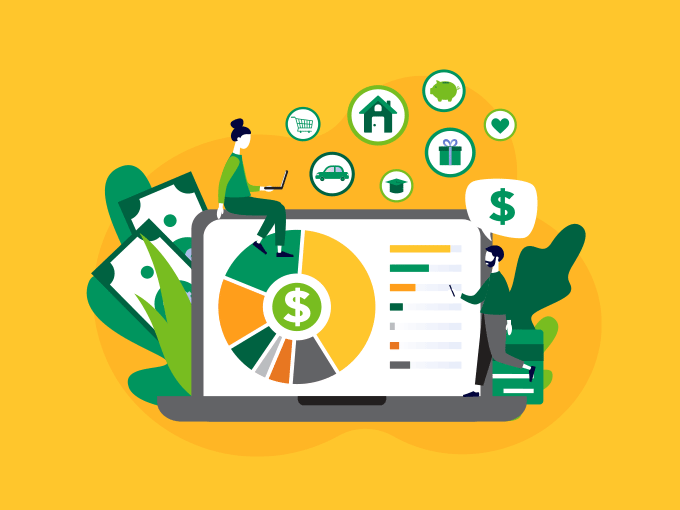It would have been difficult during the first days of 2020 to imagine how much change the impending COVID-19 pandemic would bring to our daily lives. The ways we live, work, and play have been disrupted significantly. For families, businesses, and communities, the pandemic's financial impacts have upended long-held assumptions about important spending and saving milestones and ways to achieve them.
As in other sectors of the economy, banking has seen significant shifts, and market definitions of wealth, savings, and financial well-being are changing. Below, a quick look at ongoing trends shows why account holders will be looking to their financial institutions (FIs) for a more comprehensive picture of their financial position.
Emergency funds are a necessity
Unemployment is rising to levels not seen since the Great Depression, shining a light on an urgent need for people who save actively to boost their efforts and for those who don’t, to start immediately. As trusted partners, account holders may increasingly turn to their FI for help in determining how much to save, and in what types of accounts. As some account holders take a more active approach to their finances, they'll want help in evaluating their saving vehicles and understanding the effects of interest rates, tax consequences, withdrawal fees, and other factors on their financial safety net.
Credit card use may surge
New credit applications and use of established credit have not risen as quickly as predicted, but analysts suggest a significant uptick may be only weeks away. Stimulus funds have provided needed cash infusions, but their impact is likely temporary; once stimulus checks are spent, many account holders will be turning to credit to cover business and personal expenses. Since account holders generally hold multiple cards, they may look to FIs for convenient resources to track balances and payment details.
Health care expenses are a huge worry
Even before COVID-19’s arrival, surgeries, hospital stays, and prescriptions were expensive for a significant number of Americans. While infection prevention education has helped many reassess their mental, physical, and emotional health habits, it cannot reverse increasing medical treatment costs. Many account holders are placing greater emphasis on HSA or FSA funding, supplemental or replacement health care policies, and other creative care options to minimize the burden of medical expenses.
Homeownership may be less attractive
In the new normal, owning a home may become less attractive (and less affordable). For many, increasing rents, food costs, and utility bills leave little for a real estate down payment, especially for under- or unemployed account holders. As the pool of potential buyers shrinks, existing homeowners may be less inclined to sell or make home improvements; many FIs expect segments such as younger families and seniors to shop for refinancing as a means to free up cash for healthcare, college savings plans, and other needs.
Investment losses could delay retirement plans
Stock market performance was a fast casualty of the pandemic. With many stocks and investment accounts suffering, FIs are flooded with questions about selling and trading. Account holders are eager for information on how they can protect their vital nest eggs. To further establish their status as the ever-present companion on account holders’ financial journeys, FIs may want to connect them with financial, estate, and tax planning resources so they can make informed decisions about their investment strategies and associated retirement implications.
FIs can help alleviate account holder anxiety by helping them better understand, monitor, and manage their financial health. By proactively providing information and tools that can make personal financial management more convenient and comprehensive, FIs can gain enhanced account holder trust, loyalty, and deeper relationships.
Additional resources
For more perspective on personal financial health concerns and attitudes, see also:
- Banks: Support Financial Wellbeing, Get Committed Customers (Gallup)
- How COVID-19 Could Change the Way You Budget, Forever (The Motley Fool)
- How will COVID-19 change personal finance? (Policygenius)
To learn about Q2 personal financial management solutions, read about Q2 Goals and Q2 Consumer Banking.




